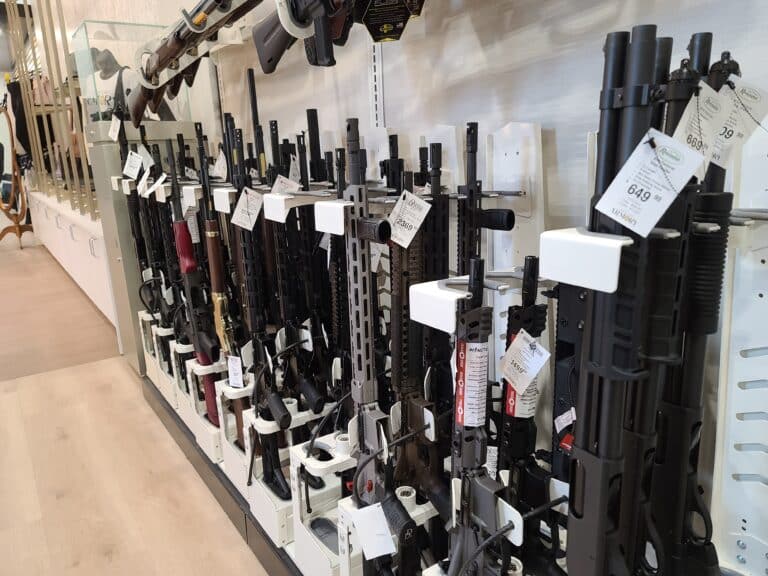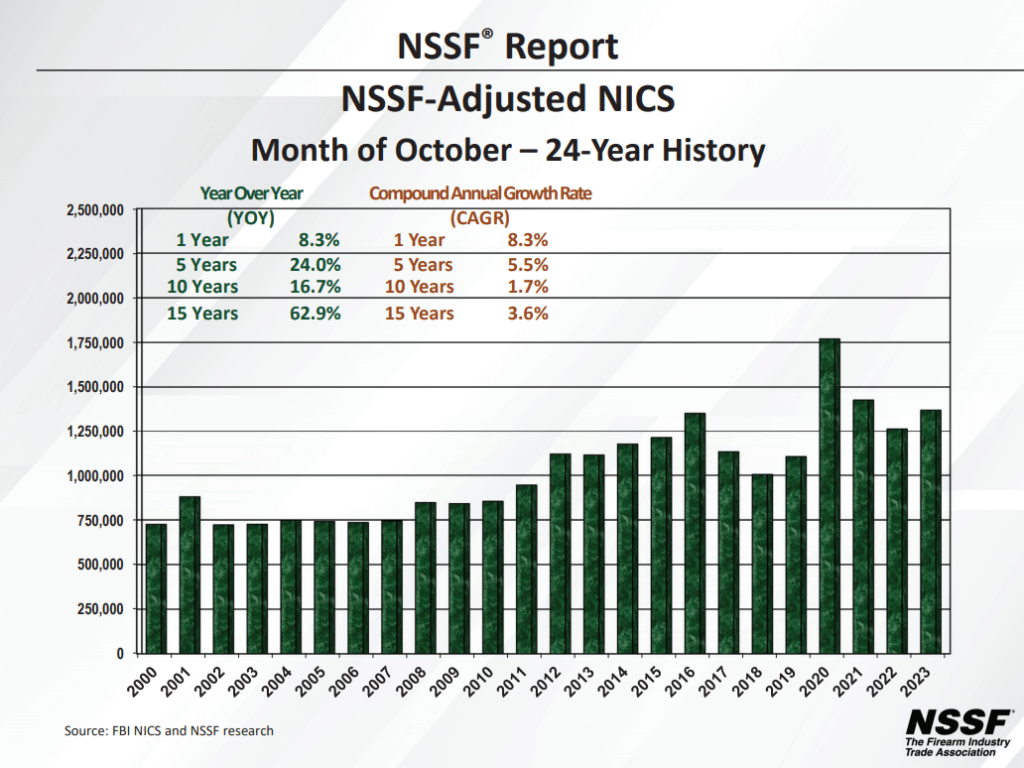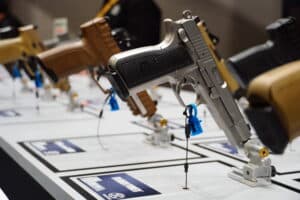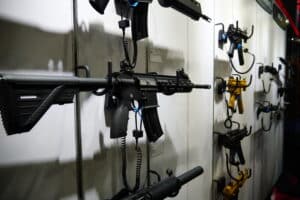The FBI ran more background checks on gun sales last month than it had during the same period in 2022, according to an industry analysis.
That indicates Americans bought more firearms this October than the previous one. The National Shooting Sports Foundation (NSSF), the trade group for the gun industry, reported on Thursday that more than 1.3 million gun checks were completed last month–representing an 8.3% increase over 2022. That makes October 2023 one of the few months to see more checks than the same period a year before and also the largest.
It also means that last month saw the third-most gun checks of any October on record, behind 2020 and 2021.
The uptick in checks indicates the post-pandemic slide in gun sales may be nearing its end. The gun industry has been searching for a new demand floor ever since sales exploded to record levels in the wake of the Covid pandemic and 2020 summer riots. Despite millions of Americans buying guns for the first time during that surge, sales have continually declined since hitting their peak three years ago and have begun to approach pre-2020 levels.
But October’s numbers could represent a new sales floor that would put the gun industry on a new footing significantly above its previous sustained highs.
The earnings of one of the country’s largest gun makers provide further reason to think the industry may be fining its new floor. In September, Smith & Wesson reported a 35 percent sales jump. That news came after eight consecutive quarters where the company reported a decline in sales.
Mark Oliva, an NSSF spokesman, said the increased sales “demonstrate the value Americans place on their Second Amendment rights.” He argued the killing of innocent people in Israel and Maine likely motivated some buyers.
“This is telling, given the stark reminders of the importance of the Second Amendment protecting the right for law-abiding citizens to keep and bear arms and protect themselves and their loved ones,” he said. “The horrific attacks on Israel followed by the escalating hate speech toward Jewish Americans, coupled with the tragic murders in Maine, are reminders that every American has the right to legally purchase a firearm to provide for their own defense.”
Gun-safety instructors and gun-rights advocates have reported a significant uptick in Jewish Americans seeking out guns and training after the October 7th slaughter of often-unarmed Israeli civilians by Hamas terrorists.
“We are frequently faced with responding to anti-Semitic attacks, but I can say that from what our organization has seen firsthand, the last week and a half has certainly been the largest spike,” Rabbi Yossi Eilfort, who runs a non-profit Jewish security group called Magen Am, told The Reload in October. “The day that the attack happened, we had 638 calls to our hotline number from Sunday to Thursday of last week, which for a small organization like us is a lot to balance. On an average week, I’d say we maybe get 40 or 50. All of last year, we had around 950 calls to that hotline. So, obviously, we’re working on rescheduling our training courses and trying to move things faster to keep up with what’s going on.”
His account was backed up by several Jewish gun owners who also spoke with The Reload.
“We all saw pictures and videos of the atrocities that were committed, and they literally had no fighting chance,” Ross, a Jewish gun owner who lives outside Chicago, said. “There was no opportunity because guns are, for civilians, largely not legal in Israel. And for many Jews, they thought if it can happen in Israel, it can happen anywhere.”
The FBI’s background check numbers are widely considered the best barometer for gun sales in the United States because federal law requires effectively all sales by a licensed dealer to include a check, and all new gun sales must go through licensed dealers. However, they are not a one-to-one gauge for several different reasons. For instance, most states don’t require checks on used sales between private parties.
Additionally, raw background check numbers are misleading because they include checks unrelated to gun sales (such as checks associated with gun-carry permits). NSSF uses the FBI’s coding of checks to remove those for permits or other transfers to come up with its sales estimate.







